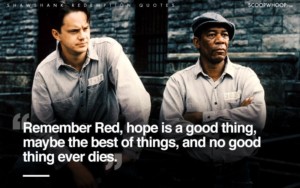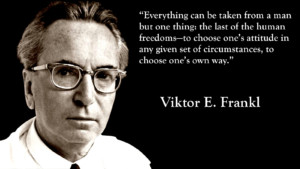“But come! With hope or without hope we will follow the trail of our enemies. And woe to them, if we prove the swifter! We will make such a chase as shall be accounted a marvel among the Three Kindreds: Elves, Dwarves, and Men. Forth the Three Hunters!”
–J.R.R. Tolkien, The Lord of the Rings: The Two Towers, Chapter I
The speaker in the excerpt is Aragorn, fated to be king, but, at this point in the story, merely the failed leader of the Fellowship of the Ring. Earlier in the chapter, he observes, “All that I have done today has gone amiss. What is to be done now?” The Ring and its Bearer have vanished, the stout Boromir lies slain, and two other hobbits of the Fellowship have been captured. Aragorn has no good choices in front of him: “An evil choice is now before us.” There is good reason to fear the worst, that the evil Sauron will regain the Ring and use it to exercise totalitarian rule over Middle Earth.
We face a perplexing situation as the pandemic drags on. How shall we proceed? Tolkien, Shakespeare and other great authors offer us lessons in just such choices. Aragorn ultimately decides to proceed on the basis of the virtues, particularly the virtues of honor, courage, and nobility. He and the other two remaining members of the Fellowship first give proper commendation to the fallen Boromir, which is the just and honorable thing to do. Next, they resolve to rescue and avenge their captured friends. Such is the context of the opening quote above. There seems to be little or no hope. Readers of Tolkien’s Silmarillion will be familiar with this type of predicament. Tolkien is borrowing it from a widespread trope in the literature of heroic paganism. Pagan heroes such as Hector, Siegfried, Beowulf, and perhaps even Anakin Skywalker, are faced with lose-lose situations. Heroism is obtained by accepting one’s fate courageously, honorably, and nobly.

“I never took the Kobayashi Maru test until now. What do you think of my solution?”–Mr. Spock acts decisively when there are no apparently good choices.
Is this not how our lives feel right now under the dual threats of a pandemic and economic disaster? There are no good choices. It’s important to admit this because if we imagine that there is a right choice, we may well fall prey to finger-pointing, polarization, and a self-defeating victimization narrative. The great pagan heroes were not victims. Aragorn himself had no time to point fingers. “It is I that have failed.” What is especially important is that Aragorn also does not collapse into paralysis: “We that remain cannot forsake our companions while we have strength left.” He chooses an honorable and courageous course, well aware that it is a long shot. But if he fails, he will at least fail doing something excellent, attempting to honor his friendship with the missing hobbits.
What is more, the author of this story is not a pagan, but a Catholic. This means that no situation is ever truly hopeless. Christian hope is a theological virtue, a gift from the God Who has proven Himself faithful and more powerful than death and despair. This allows us to go beyond even what is just, courageous or noble. We should still choose this, of course, but we add to this natural virtue the horizon of hope. God can see all kinds of possibilities that we can’t yet. Welcoming the gift of hope is largely a matter of cooperating with the divine.
Hope allows us to remain active participants in the drama that is our lives. A large part of the fear, anxiety, and depression that have been affecting us reflect a sense that nothing we can do will change the situation. It is true that most of us will not make a big difference in, say, public policy at the federal, state, or even city level. But this is true at all times, and not just in times of crisis. We can make a big difference in our outlook and the outlook of our families and friends. And hope, like all virtue, is contagious. If enough of us are re-empowered to take action, who knows what breakthroughs we might discover? When we hope, we open ourselves to God’s perspective, a greater vista than that offered by typical politics or science.
So what can you do today for someone you love? What do you owe your family today? What do we owe ourselves? What ignoble behaviors can we identify in our lives that we can resist? These and other questions like them are always good to ask, but we easily overlook them when a situation feels beyond our control and the future feels suddenly uncertain.
 The truth is that our future has always been uncertain. On January 1, 2020, our future was just as uncertain as it is today because it was exactly the same future. We just didn’t know certain things four months ago that we know now. In this life, circumscribed by our births and our ultimate deaths, things are always uncertain. The successes of science and sociology have tended to obscure this fundamental truth. However, being reminded of it is not a bad thing, though we might wish that it had become clearer without the intervention of a potential disaster.
The truth is that our future has always been uncertain. On January 1, 2020, our future was just as uncertain as it is today because it was exactly the same future. We just didn’t know certain things four months ago that we know now. In this life, circumscribed by our births and our ultimate deaths, things are always uncertain. The successes of science and sociology have tended to obscure this fundamental truth. However, being reminded of it is not a bad thing, though we might wish that it had become clearer without the intervention of a potential disaster.
Our choices are always made in the face of an uncertain future. Often enough, choices that seemed to be correct at one point in our life look terrible in hindsight, and vice versa. What we always need in the face of such choices is hope that no matter how bad things get, God is accompanying us in the persons in our lives, especially those imbued with virtue. When there are no good choices, we are still free. In fact, we are freed precisely from the burden of having to be “right” in a narrow technocratic or utilitarian sense. We are free to ask the more important question, “What kind of person, city, and nation do we want to be in the midst of our suffering?”
Tolkien answers for Aragorn in his actions. “On and on he led them, tireless and swift, now that his mind was at last made up.”

